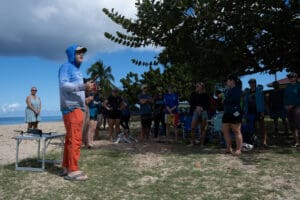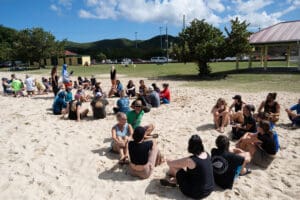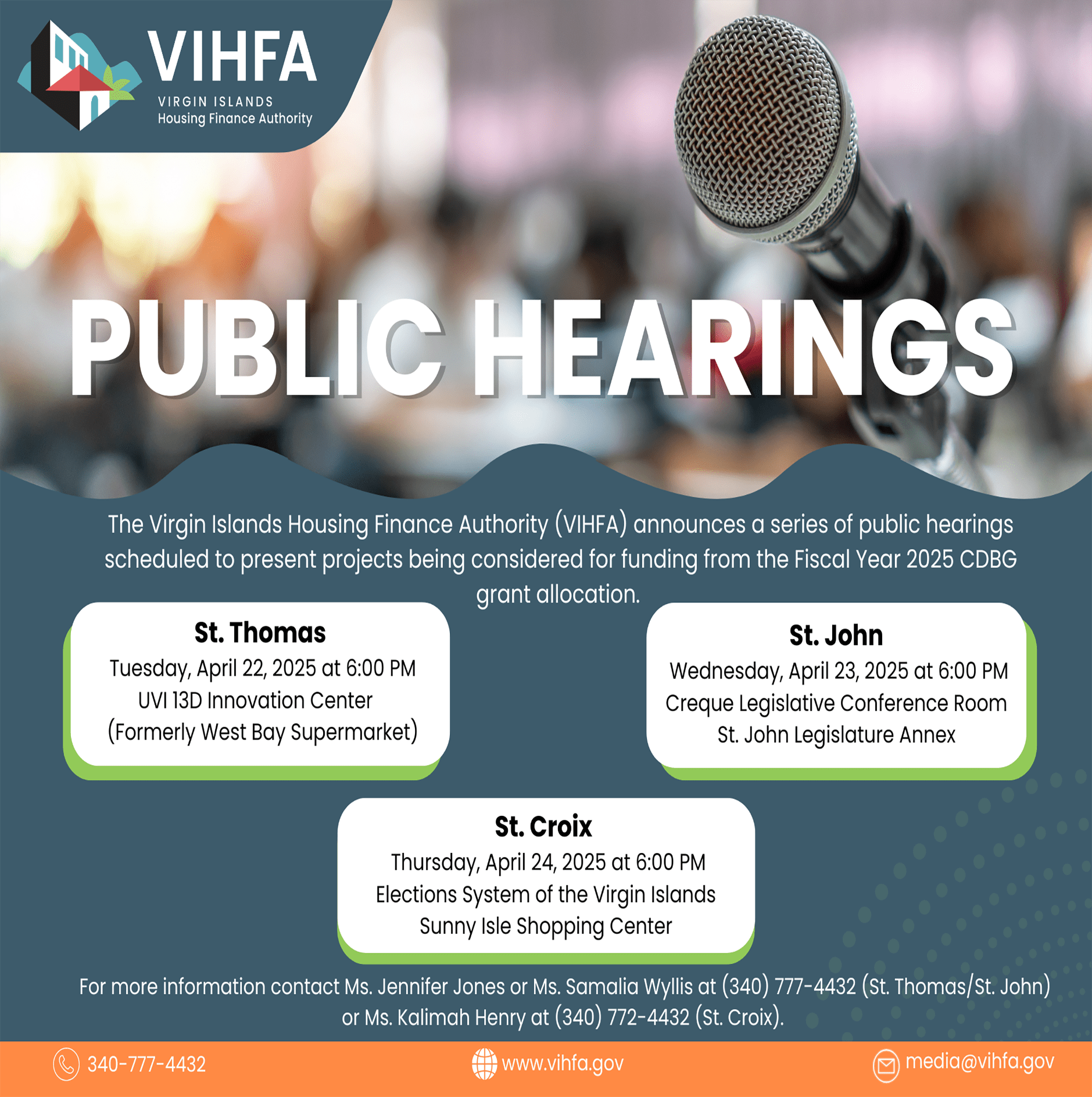
Anyone with a bird’s eye view of Frederiksted Saturday morning may have seen a call to action in the form of 50 or so people spelling out “S.O.S.” on the beach.
These weren’t shipwrecked sailors, but like Robinson Crusoe, some were recently cast away. The group of scientists, public employees and concerned residents who attended the “Stand Up for Science” art intervention included several former federal employees who lost their jobs amid the Trump administration’s blitzkrieg of firings and funding cuts. On Saturday, “S.O.S.” stood for “Save Our Sciences.”
The event was one of dozens held across the country this week to protest the cuts to the federal workforce and public scientific programs and research spearheaded by Elon Musk’s Department of Government Efficiency.
A month ago, trained archaeologist Pardis Zahedi worked in the National Park Service’s Historic Preservation Training Center. She said that changed on Feb. 14, when she and two of her colleagues — both young Virgin Islanders — were “illegally terminated.” Zahedi told the Source Saturday that proposed budget cuts threaten an array of public programs including SNAP, Section 8 housing assistance and continued support from the Federal Emergency Management Agency. Critically needed federal grants are also in limbo.

“The National Heritage Area, of course, is a big one. That’s $2 million in annual funding into our territory that would be supporting all kinds of things, from public programs, interpretation training, exhibits — and a lot of local government positions are federally funded,” she said. Within her own field, Zahedi said archaeologists hired by the State Historic Preservation Office are federally-funded. “And so we are also losing capacity in our territory by losing access to this funding.”
Ryan Flegal, who owns and operates the Feather Leaf Inn out of the historic Estate Butler Bay great house, said federal support goes beyond the billions of dollars in disaster recovery funds for infrastructure repairs and replacements.
“There are lots of nonprofit organizations, there’s lots of research, there’s lots of key things that happen with fisheries, with safeguarding the place that we all love so dearly that comes from the federal government and that is spent either privately, through grants or incentive programs or spent through nonprofit organizations,” he said.
Flegal said his organization — a “triple bottom line company” which is “just as concerned about health and environmental issues as we are about the business of running a hotel” — is one of the organizations scheduled to receive a $2.3 million coral restoration grant from the National Oceanic and Atmospheric Administration as well as solar grants through the U.S. Agriculture Department’s Rural Energy for America Program. The latter has been put “on pause.”
“So the result of all of this is far fewer services and a big economic dip for the U.S. Virgin Islands,” he said. “So the Trump administration has been all about ‘economy, economy, economy,’ but the actions he’s taking are likely to crash our economy… or certainly have a big impact on it.”

Jordan Schneider, founder of Ceiba Strategies, said the NOAA grant “thankfully is not frozen right now,” but the Trump administration’s stop-and-go funding announcements have still had a chilling effect on people who are uncertain about working under federally-funded programs.
“And it’s certainly not efficient, because… you spend all this time and effort to ramp the program up, and then it’s frozen. Then… it takes time and effort to ramp it down,” she said. “And then to recover that lost ground — it’s just so much more effort, and you’re trying to convince people to work with you.”
Schneider said the lack of confidence in the future of federally-funded projects has been “the most detrimental thing.”
While that NOAA grant is, for the moment, on track, the agency has seen drastic staffing cuts.
Leslie Henderson was hired several months ago to manage grants for coral and coastal zone initiatives, managing “a couple million dollars” between the federal and local governments. She was among the reported hundreds of employees who were recently let go. Henderson said the cuts have affected all of the country’s island jurisdictions and that the territory faces a huge loss because funding decisions are going to be made by people who don’t live here.
“So when these proposals and grants come in, they won’t have a local voice to say, ‘oh, here’s some context around this project’ — and argue for it [and] say, we really want this funding,” she said. “It’s people sitting in headquarters that are going to say, ‘oh, we want to fund this, we want to fund that,’ without the local context.”
Later, Henderson noted that the cuts have also impacted the agency’s weather reporting.
“We rely on hurricane predictions here,” she said. “And so they are scrambling, right now, to figure out how they can even do that.”
Besides hindering the territory’s hurricane warning infrastructure, Zahedi said the cuts and funding uncertainty lower the U.S. Virgin Islands’s resiliency to storms.
“Of course, no agency is perfect. Is there waste in the government? I’m sure there is, but ultimately, these cuts aren’t being done in an intentional way,” she said, likening the Trump administration’s approach to pulling components out of a car to make it go faster. “You don’t just start pulling stuff out of the car without thinking about what’s important.”














